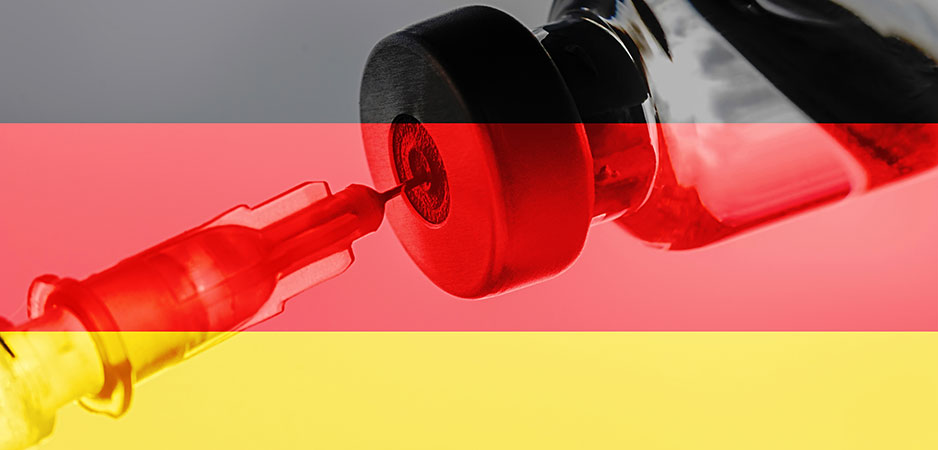There is an unwritten rule in politics: If you are incompetent, at least you should not be corrupt. It seems nobody ever informed the German Christian Democrats that this was the way of things. How else to explain why Christian Democratic MPs thought it was perfectly fine to take advantage of Germany’s COVID-19 crisis to line their own pockets? In German, we have a word, “,” to refer to somebody who cannot get enough, never satisfied with what they have. In the concrete case, a member of the German Bundestag from the Christian Democratic Union (CDU) pocketed €250,000 ($298,000) in commissions for brokering a deal involving the procurement of FFP2 face masks by the federal and the state governments.
Another member, who so happened to serve as deputy leader of the Christian Democratic parliamentary group, this time from the Christian Social Union (CSU), the CDU’s Bavarian sister party, appears to have made similar deals. Both were exposed and were ultimately forced to resign from the parliamentary group and leave their parties. End of the story, or so the Christian Democrats hoped. But this (masks affair) continued to provoke strong emotions. In the process, it not only severely damaged the CDU/CSU’s image, but also caused a significant loss of trust in the party.
Beware! Populism Might be Bad for Your Health
The mask affair is not the only scandal that has haunted the party. Another controversy has been smoldering for some time now, involving dubious business relations between CDU MPs and the quasi-dictatorial regime of Ilham Aliyev, Azerbaijan’s strongman. A few days ago, one of the MPs involved in the affair relinquished his mandate. Two other MPs are being investigated by the public prosecutor’s office in Munich on charges of corruption. Apparently, payments were made to the MPs in exchange for their keeping quiet about the dismal human rights record of the regime in Baku. , as they used to say in ancient Rome — money does not stink — not even in the offices of the Christian Democrats.
A Super Election Year
Unfortunately, this year is what in German is known as a — a super election year. In September, Germans are called upon to elect a new federal parliament. In the meantime, a number of Germany’s Länder, the regional administrative units that constitute the federation, will elect their regional governments. The process started with elections in two southwestern regions, Baden-Württemberg and Rheinland-Pfalz, over the weekend. With a population of more than 11 million, Baden-Württemberg is the more important state; Rheinland-Pfalz’s population amounts to a mere 4 million.
In addition, Baden-Württemberg used to be a CDU stronghold. In the 1970s, the party routinely scored more than 50% of the vote, with a high point in the 1976 state election which saw the CDU gain over 56%. From then on, things started to go downhill. In the first election in the new century, the CDU still commanded roughly 45% of the vote; by 2016, it reached rock bottom, at 27%. It could not get any worse, or so it seemed. It did. The latest pre-election polls had the CDU at 24% of the vote. On Sunday, the party lost roughly 3% compared to the previous election, which left it with roughly what the polls had anticipated.
The situation in Rheinland-Pfalz was similar. In the 1970s, the CDU gained on average around 50% of the vote. By the new century, its support stood at 35%; 15 years later, at 32%. Pre-election polls had the party at around 29%, with a downward tendency. And fall it did: With a loss of around 4% of the vote, it scored a historic low. At the same time, in both Länder, the radical populist-right Alternative for Germany (AfD) returned to parliament, even if significantly decimated. It should also be noted that a large number of people in both states voted by mail, in many cases weeks before the election and before the disastrous masks scandal. Otherwise, the CDU losses would probably have been even greater. Hardly surprising, the dominant issue in these elections was COVID-19 or, more precisely, the government’s handling of the pandemic, particularly after the second wave hit the country in late fall.
By now, the judgment is in, and it is devastating on many accounts. You know that something has gone terribly wrong when those who used to admire you, such as the British, now express either derision or, worse, pity; or when Germany’s leading news magazine Der Spiegel feels the need to ask why the United States — once jeered for its lack of preparedness during the Trump administration — “is so much better when it comes to vaccinating.”
A recent account of vaccination data collected and put online by Germany’s leading public television channel, ARD, proves the point. Germany is far, far behind countries such as Israel, Great Britain, the United States, Chile, Hungary and even Greece — the country Germans love to denigrate as mismanaged and corrupt. At the beginning of March, merely 3% of the population had received the vaccine in Germany, and this despite the fact that the first vaccine to be certified was a German co-production.
Appearance vs. Reality
The pandemic has brutally exposed the fundamental difference between appearance and reality. For long, Germany has promoted itself as a model to follow — the famed “Modell Deutschland” — or at least was promoted by outsiders as such. The perhaps most prominent promoter was Michel Albert, the former head of the French General Commission for the Modernization and Equipment Plan. In his 1991 book, “Capitalisme contre capitalisme” (“Capitalism Against Capitalism”), he postulated the superiority of “Rhenish capitalism” over the Anglo-Saxon model of capitalism. The book was translated into several languages and proved highly influential. One wonders whether Albert’s analysis would be the same today. I somehow doubt it.
Central to progress in any kind of capitalist system is innovation, what the prophet of innovation, Joseph Schumpeter, famously characterized as “creative destruction.” New technologies and particularly digitalization have advanced with dramatic speed over the past two decades, making innovation absolutely crucial for a country’s competitiveness. This is a painful lesson Germany has been forced to learn as the pandemic progressed. As an article in the country’s leading business newspaper, Handelsblatt, warned last year, Germany was falling farther and farther behind with respect to innovation. Among the reasons are, most prominently, a dearth of top research, high-tech investments and, last but not least, openness to the world. For Germany to regain its competitive edge, the author charged, politics had to wake up from its (Sleeping Beauty’s slumber) and provide necessary measures.
A year later, politics has still not completely woken up; or, perhaps, it has woken up but is fundamentally incapable of addressing the myriad of problems and challenges it confronts. Examples abound, some tragic, others bordering on the ridiculous and the grotesque. Take the case of inoculations. The program started a couple of weeks ago. It progressed at a snail’s pace. In the face of massive public attempts to secure an appointment, the server crashed and phone hotlines were overwhelmed for hours on end. In the meantime, letters designed to inform the over 80-year-olds could not be sent, among other things because authorities lacked the necessary information regarding age. As a result, in some cases, authorities guessed the age of potential recipients on the basis of their first names. Adolf and Adolfine — a sure bet the person is eligible for priority vaccination.
Angela Merkel: A Retrospective
Take the case of COVID-19 tests as another example. Bavaria introduced them in the late summer of 2020, with suboptimal results, to put it kindly. Test results were supposed to be delivered within 48 hours. In reality, it took up to a week, the result of a technical glitch at the private server provider in charge of the tests. The experiment turned out to be a major debacle, with doctors having to cancel appointments and health authorities going incommunicado. In the new year, German authorities once again took up the question of testing in a lengthy debate that took several weeks. Finally, in early March, Germany’s health minister from the CDU, Jens Spahn, announced that the government had ordered hundreds of millions of test kits. Critics were quick to point out that Germany lacked the capacity to carry out the tests.
In an earlier article on Angela Merkel’s legacy (she leaves office in September), I have suggested that her place in history will be judged by the way she handles the pandemic. By now, it is apparent that the chancellor’s COVID-19 crisis management has been nothing short of disastrous. In early February, Merkel conceded mistakes but insisted that on the whole, the government’s cautious and hesitant approach had been justified. The fact is — and German media have pointed it out on numerous occasions — that many of the problems linked to the pandemic are the result of years of neglect during Merkel’s mandate, particularly when it comes to Germany’s digital infrastructure. Compared to other countries in the European Union, Germany is a “digital developing country,” an assessment recently made by the Boston Consulting Group and widely commented on in the media. In fact, it seems that over the past decade or so, Germany has fallen even more behind other countries, such as Estonia.
The pandemic has brutally exposed to what degree Germany was lagging behind its main competitors — at least five to 10 years, as one observer asserted last year. The impact is felt every day in offices, labs and particularly schools. Last year, an EU education report noted that in 2017-18, only 9% of Germany’s elementary students had access to a digitally well-equipped school. Once the pandemic forced schools to shut down and go online, the consequences of Germany’s digital divide became glaringly obvious, to the detriment of the youngest generation.
Don’t Expect Too Much
It is becoming increasingly clear that Angela Merkel’s time in office has been characterized by a degree of Panglossian complacency combined with a cautious and hesitant don’t-rock-the-boat mentality that left the country largely unprepared to deal with this pandemic in an efficient, effective and competent way. The most recent example is who gets to be part of the vaccination program. While family doctors and general practitioners have strongly expressed their desire to be part of the roll-out, the government continued to prefer public vaccination centers, thus ignoring viable options to accelerate the pace of immunization.
It was only after protracted negotiations between the federal government and the Länder that an agreement was reached to open the vaccination campaign to private practices starting in mid-April. At the same time, Spahn, himself heavily criticized for the test kit disaster, dampened expectations given the bottlenecks in the procurement of vaccines. As the health minister put it, “One has to be a bit cautious with regard to the management of expectations.” In other words, don’t expect too much — a perfect characterization of the government’s dealing with the pandemic over the past several months.
The result has been growing popular discontent. In early March, a large majority of respondents in a representative poll expressed dissatisfaction with the organization of the vaccination campaign, the supply of testing kits and the way the vaccines were procured. At the same time, in a second poll, almost half of respondents said they were dissatisfied with the work the Christian Democrats did in government (a bit more than 40% said they were satisfied). And as a result of the , trust in the Christian Democrats has plunged to record lows.
In German, we have the word, “” — pointing to a direction or setting the trend. Ulli Hoeness, the iconic former president of Germany’s most successful soccer club, Bayern München, once proclaimed that “the trend is your friend.” This might be true for Germany’s premier soccer club, but it is certainly not true of the Christian Democrats. The results of the two elections last weekend portend ills for the federal vote later this year.
They also do not bode well for the reputation of Angela Merkel, who is likely to be remembered primarily for her (mis)handling of the coronavirus crisis, for failing to halt or reverse the Christian Democrats’ downward spiral at the polls and, last but not least, for being incapable of preventing the AfD from establishing itself in Germany’s party system. As the good book says, “You have been weighed on the scales and found wanting” (Daniel 5:27).



